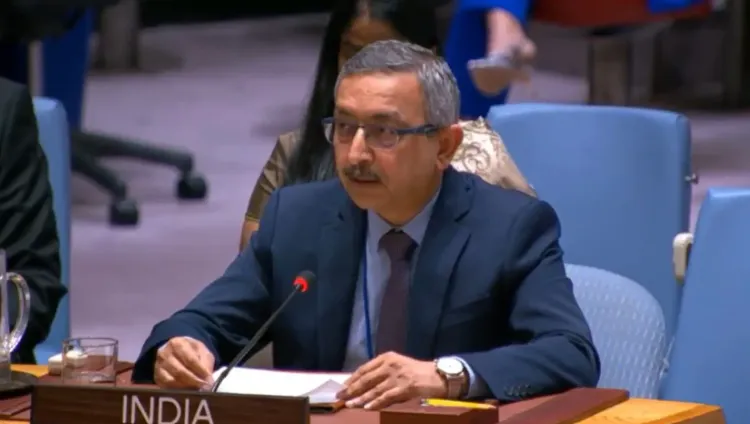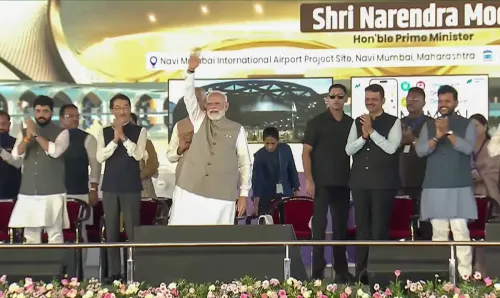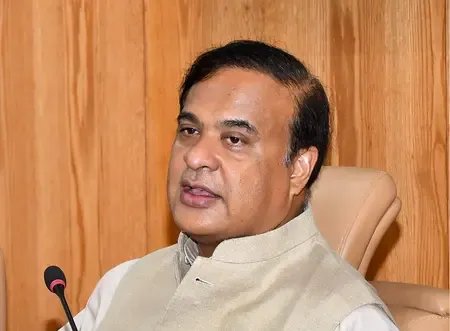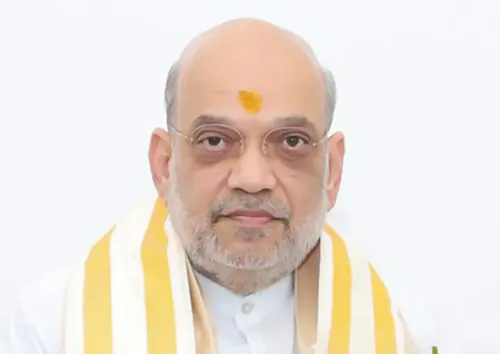How is India reinforcing its commitment to a free maritime order at the UNSC?

Synopsis
Key Takeaways
- India's commitment to a rules-based maritime order is unwavering.
- Participation in international maritime organizations underscores India's leadership.
- India's coastline is critical for global trade and security.
- Joint exercises enhance collaboration with global partners.
- Environmental sustainability is a key focus in maritime initiatives.
New York, Aug 12 (NationPress) During a pivotal UN Security Council discussion on maritime security in New York, India emphatically reiterated its dedication to a free, open, and rules-based maritime order, anchored in international law and guided by the United Nations Convention on the Law of the Sea (UNCLOS).
The session, led by the Permanent Mission of Panama, convened global stakeholders to tackle urgent issues in maritime governance and security.
Tanmaya Lal, Secretary (West) of the Ministry of External Affairs (MEA), articulated the concept of MAHASAGAR (Mutual and Holistic Advancement for Security and Growth Across Regions)—India's vision for maritime safety, as presented by Prime Minister Narendra Modi.
He also extended his congratulations to Panama for assuming the President's role of the UN Security Council for the month of August.
Highlighting the crucial role of maritime routes in global trade, energy distribution, communication, and the variety of threats faced, Lal emphasized India's rich maritime heritage. He pointed out that India, one of the world's largest economies, has significant interests in maritime security.
“With a coastline exceeding 11,000 km and nearly 1,300 offshore islands, India has an Exclusive Economic Zone of about 2.3 million sq km. The nation shares maritime borders with seven countries, boasts 12 major ports, around 200 smaller ports, and nearly 30 shipyards, continuing its age-old shipbuilding legacy. India is also the third-largest supplier of seafarers to the global maritime sector,” he stated.
Lal also noted that a large portion of the Indian populace resides near the coast, with millions depending on the ocean economy for their livelihoods.
He stressed that the scale of maritime safety and security challenges, along with the pressing need for economic stability and environmental sustainability, is significant for India.
“India is a founding member of the Indian Ocean Rim Association (IORA) and the Indian Ocean Naval Symposium (IONS), and it holds observer status at the Indian Ocean Commission (IOC). We also collaborate with various partners in other frameworks such as the Djibouti Code of Conduct (DCoC), the Contact Group on Illicit Maritime Activities (CGIMA), and the Bay of Bengal Initiative for Multisectoral Technical & Economic Cooperation (BIMSTEC),” the MEA official highlighted.
“Operational synergy is achieved through collaborative working groups and exercises like Coordinated Patrols (CORPATs), Africa-India Key Maritime Engagement (AIKEYME), ASEAN-India Maritime exercises, the exercise MILAN hosted by India, the IONS Chiefs Conclave, and the exercise Malabar. Additionally, India and the EU have conducted joint naval operations in the Gulf of Guinea to bolster maritime security,” he added.
Lal further noted that in a distinctive initiative, an Indian Naval Ship recently functioned as an Indian Ocean Ship (IOS) Sagar, sailing with a crew of nearly 50 from 9 partner countries in the Indian Ocean Region, engaging in joint maritime security operations.
India's ongoing Deep Ocean Mission, Lal mentioned, aims to enhance understanding of deep-sea ecosystems, promoting sustainable fisheries and biodiversity conservation.
He called for authentic international collaboration to tackle shared maritime security and prosperity challenges, asserting that as a responsible maritime nation, India is prepared to continue contributing to these collective efforts.









